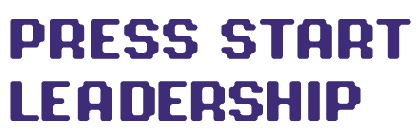Bracing for Impact: Strategies for Weathering Record Layoffs, Funding Shortages, and Scarce Publishing Deals in Gaming
The video game industry, known for its dynamism and rapid growth, is currently facing a storm of economic challenges. With record layoffs, dwindling investment opportunities, and a scarcity of publisher deals, studios, especially smaller and independent ones, find themselves in survival mode. This comprehensive guide offers pragmatic strategies for weathering this storm over the next 6 to 18 months, confronting the uncomfortable truths and equipping industry professionals with the tools needed to navigate these turbulent times.
Understanding the Current Landscape
The Reality of the Industry’s Downturn: The video game industry is experiencing a significant downturn, marked by layoffs, reduced investment, and fewer publishing deals. Understanding the factors contributing to this situation – such as economic recessions, market saturation, and shifts in consumer spending – is crucial for developing effective survival strategies.
Impact on Small and Independent Studios: Smaller and independent studios are particularly vulnerable in this climate. With limited resources and financial cushioning, the impact of the current economic challenges can be severe and immediate.
Financial Management and Cost Control
Tightening the Belt: Effective Budgeting: In times of financial constraint, stringent budget management becomes crucial. Review and revise your studio’s budget, prioritizing essential expenses and cutting non-critical costs.
Exploring Alternative Revenue Streams: Diversify your studio’s revenue streams. This could involve monetizing existing games through additional content, exploring merchandising opportunities, or offering consultancy services.
Staffing and Team Management
Navigating Layoffs and Staff Reductions: If layoffs or staff reductions are unavoidable, handle them with transparency and empathy. Explore alternatives such as reduced hours or temporary salary cuts, ensuring that these measures are in compliance with labor laws.
Leveraging Freelancers and Contractors: Consider working with freelancers or contractors for specific tasks or projects. This approach can provide flexibility and reduce long-term financial commitments.
Pivoting and Adapting Game Development Plans
Strategic Pivots in Game Development: Reevaluate your game development plans. Consider pivoting to smaller, less resource-intensive projects that align with current market demands and can be brought to market more quickly.
Focusing on Core Competencies: Concentrate on your studio’s strengths. Whether it’s a particular genre, art style, or innovative gameplay mechanic, focusing on what you do best can help in creating a niche and loyal player base.
Seeking Funding and Investment
Exploring Funding Options: In a climate where traditional investment might be scarce, look for alternative funding options. This could include crowdfunding, government grants, or joining incubator programs.
Crafting Compelling Pitches: When seeking funding, ensure that your pitches are compelling, clear, and concise. Highlight your studio’s unique selling points, past successes, and the viability of your proposed projects.
Building and Maintaining Community Engagement
Leveraging Existing Player Bases: Engage with and leverage your existing player base. Maintain open communication channels, gather feedback, and involve them in the development process through beta testing or community-driven content creation.
Utilizing Social Media and Online Platforms: Maximize the use of social media and online platforms for marketing and community engagement. These cost-effective channels can help in maintaining visibility and interest in your studio’s activities.
Strengthening Publisher and Industry Relationships
Nurturing Publisher Relationships: In times of fewer publishing deals, nurturing existing relationships with publishers becomes even more critical. Keep communication lines open and regularly update publishers on your studio’s developments and projects.
Collaborating within the Industry: Seek collaborative opportunities within the industry. This could involve partnerships with other studios, joint ventures, or shared resource initiatives.
Managing Morale and Team Spirit
Fostering a Positive Work Environment: During challenging times, maintaining team morale is essential. Foster a positive work environment through transparent communication, recognition of team efforts, and support for employee well-being.
Encouraging Innovation and Creativity: Encourage your team to think creatively and innovate. Host brainstorming sessions, internal game jams, or innovation challenges to keep the team engaged and motivated.
Preparing for Recovery and Growth
Developing a Long-Term Recovery Plan: While navigating immediate challenges, also prepare for the future. Develop a long-term plan that outlines how your studio will recover and grow once the industry stabilizes.
Staying Informed and Adaptable: Stay informed about industry trends and changes. Being adaptable and ready to pivot as the market recovers will position your studio to capitalize on emerging opportunities.
Advanced Market Analysis Techniques
In an industry as volatile as video gaming, staying ahead of market trends is crucial. Advanced market analysis can provide insights that help in making informed decisions.
Utilizing Data Analytics: Leverage data analytics tools to gain insights into player behaviors and preferences. Analyze your game data to understand what features resonate with your audience and why.
Keeping Tabs on Competitors: Conduct competitor analysis to understand their strategies and performance. This can help in identifying market gaps and opportunities for your studio to exploit.
Leveraging Emerging Technologies
Emerging technologies can offer new opportunities for game development and operational efficiency, especially in times of resource constraints.
Exploring Cost-Effective Technologies: Investigate new technologies that can streamline development processes or enhance game experiences without significant investment. Technologies like AI, cloud computing, and procedural content generation can be particularly useful.
Staying Flexible with Tech Adoption: Adopt a flexible approach to technology. Be open to experimenting with new tools and platforms, but also be ready to pivot if they don’t align with your studio’s needs or capabilities.
Sustaining Innovation in Challenging Times
Innovation is key to standing out in the crowded gaming market, and it becomes even more crucial when resources are limited.
Fostering a Culture of Creativity: Encourage a culture of creativity and experimentation within your team. Host regular ideation sessions and provide platforms for team members to pitch their ideas.
Lean Innovation Practices: Adopt lean innovation practices. Focus on developing minimum viable products (MVPs) to test game concepts and mechanics without extensive resource investment.
Streamlining Development Processes
Streamlining game development processes can help in reducing costs and improving efficiency, ensuring that limited resources are used effectively.
Implementing Agile Methodologies: If not already in place, consider implementing Agile development methodologies. Agile practices like Scrum can enhance team productivity and adaptability.
Prioritizing Features and Content: Carefully prioritize game features and content development. Focus on core elements that are crucial to the game’s success and consider postponing or eliminating less critical features.
Building Resilience for Long-Term Stability
Building resilience into your studio’s operations and strategy is vital for not just surviving the current challenges but also for future stability and growth.
Developing a Resilient Business Model: Evaluate and adapt your business model to be more resilient to market fluctuations. This could involve diversifying revenue streams, building a stronger online presence, or adopting more flexible staffing models.
Preparing for Future Challenges: Use the lessons learned during this challenging period to prepare for future industry downturns. Develop contingency plans and maintain a mindset of continuous adaptation and learning.
Planning for the Post-Crisis Landscape
While navigating current challenges, it’s important to look ahead and prepare for the time when the industry begins to recover.
Anticipating Market Recovery: Stay informed about indicators of market recovery and be prepared to capitalize on them. This involves being ready to ramp up operations, launch new projects, and re-engage with your audience fully.
Positioning for Post-Crisis Growth: Develop a post-crisis growth strategy. Consider how your studio can emerge stronger, with new offerings, enhanced capabilities, and a solid base of loyal players.
Final Thoughts:
Surviving and thriving through the next 6-18 months in the video game industry amidst economic challenges requires a multifaceted approach. By focusing on strategic financial management, innovative development practices, market analysis, and leveraging technology, studios can not only withstand the current storm but also lay the groundwork for future success.
Embracing agility, fostering a culture of innovation, and building resilience are key. As the industry navigates these turbulent times, the studios that adapt, innovate, and stay true to their core vision are the ones that will emerge as leaders in the next chapter of the video game industry’s story.
Thank you for reading this article to the end. I hope it has been informative and helpful. If you’d like to learn more about the topics we covered, I invite you to check out my podcast and my YouTube channel where I delve into these subjects in more depth.
Additionally, I would love to stay in touch and keep you updated on all the latest developments and insights in the world of leadership. That’s why I encourage you to sign up for my newsletter. Not only will you receive regular updates, but as a thank you for joining, I will also send you my free eBook, “5 Heroic Leadership Skills.” This eBook is packed with practical tips and strategies that will help you take your leadership skills to the next level.
So don’t wait! Sign up for my newsletter today and start your journey towards becoming a more effective and inspiring leader. I can’t wait to hear from you.
Work With Me!
If you’re on the quest to elevate your team’s leadership, production, or game design capabilities, I’m here to assist! Leveraging extensive experience and a strategic approach, I offer personalized audits, bespoke workshops, and leadership retreat facilitation to drive your team toward excellence. My commitment is to provide efficient, reliable, and proven support, ensuring you have the tools and insights needed to thrive. Ready to unlock your team’s full potential and achieve unparalleled success? Don’t hesitate—Press Start on your journey to transformation today! Feel free to reach out directly to discuss how we can tailor a solution to meet your unique needs and goals. Let’s connect and take your team’s performance to the next level!
🔗 www.pressstartleadership.com
📧 contact@pressstartleadership.com


